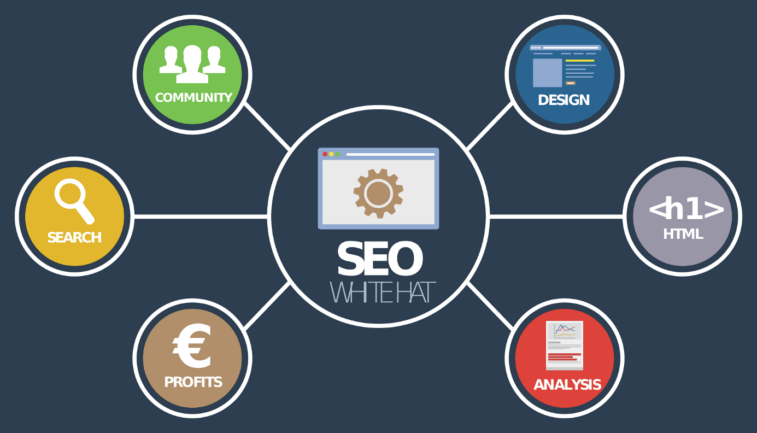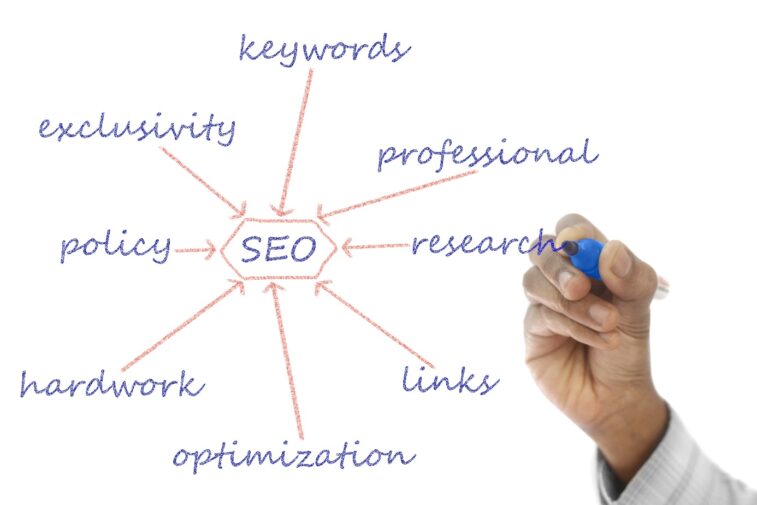12 Feb 2024

SEO Strategies for Hotels: A Comprehensive Guide
In the competitive landscape of the hospitality industry, driving traffic to your hotel's booking engine is crucial for success. Implementing effective SEO strategies tailored for hotels can significantly enhance your online visibility, attract more potential guests, and ultimately increase bookings. In this comprehensive guide, we'll delve into essential SEO techniques designed specifically for hotels, offering valuable insights and tips to optimize your hotel listings for search engines.
Understanding the Power of SEO
Search Engine Optimization (SEO) plays a pivotal role in making your hotel stand out in the vast online market. When potential guests search for accommodation, they're likely to use search engines like Google. Optimizing your hotel's online presence ensures that your website appears prominently in search results, increasing the likelihood of attracting visitors and potential bookings.
Integrating MappingMaster Channel Manager
Now, let's explore how integrating MappingMaster, the ultimate Channel Manager and Booking Engine, can enhance your hotel's online presence and streamline operations. MappingMaster offers a seamless web-based reservation experience and effortless synchronization of rates, availabilities, and operational data across numerous online booking platforms, including OTAs, GDS, and your own website.

MappingMaster Benefits:
Increased Visibility: Enhance your online visibility across leading booking sites worldwide, capturing the attention of a wider audience and attracting more guests to your doorstep.
Optimize Occupancy and Revenue: Boost occupancy levels and revenue effortlessly with centralized data management. Experience the convenience of one login for all booking websites, streamlining your management process.
Secure Direct Bookings: Unlock the potential for direct bookings through your hotel website, maximizing online revenue and reducing dependence on third-party platforms.
Automated Synchronization: Effortlessly replace manual entries on multiple booking sites with a single, central, automated system. Focus on running your hotel business while seamless automated synchronization takes care of the rest.
Driving Traffic to Your Booking Engine
One of the primary goals of your hotel's online presence is to channel visitors seamlessly to your booking engine. Here's how SEO can be harnessed to achieve this:
Keyword Research and Implementation
Start by conducting thorough keyword research. Identify relevant keywords and phrases potential guests might use when searching for hotels in your location. These could include terms like "luxury hotel," "family-friendly accommodation," or "beachfront resort." Incorporate these keywords naturally into your website's content, meta tags, and headers to enhance its visibility to search engines.

Compelling Content Creation
Create engaging and informative content that not only showcases your hotel's amenities and offerings but also addresses the needs and interests of your target audience. Develop a content calendar for the next six months, focusing on topics and keywords that align with your SEO strategy. High-quality content not only attracts visitors but also signals to search engines that your site is authoritative and relevant.
Pillar Pages and Internal Linking
Explore the concept of pillar pages – comprehensive, in-depth pages that cover a specific topic. For instance, if "Family Amenities" is a key focus, create a pillar page titled "The Ultimate Guide to Family-Friendly Hotel Amenities." Link this pillar page to relevant subtopics like games rooms, family hotel rooms, and kids' swimming pools. This internal linking strategy enhances your site's structure, provides a better user experience, and improves crawlability.
Leveraging AI for Content Production
Consider incorporating AI tools like ChatGPT into your content creation process. While Google emphasizes appropriate use, AI can serve as a valuable assistant for tasks like brainstorming content ideas, suggesting keywords, and understanding search intent. Use AI as a supplement to your efforts, ensuring that the content remains high-quality and aligns with your hotel's unique voice.
Optimizing Hotel Listings with MappingMaster Integration
Now, let's incorporate MappingMaster into the optimization of your hotel listings for search engines:

Local SEO Strategies
a. Google Business Profile Optimization
Ensure your hotel's Google Business Profile is set up and optimized. Encourage positive reviews to enhance your profile's credibility. Google considers this information when displaying local search results.
b. Location Targeting in Content
Incorporate location-specific keywords into your content, headings, and metadata. Showcase your expertise in the local area, demonstrating your hotel's relevance to potential guests searching for accommodations in your geographic region.
c. Local Directories and Schema Markup
Get listed in local directories and citation sites relevant to the hospitality industry. Implement local business schema markup on your website, providing search engines with structured information about your hotel, enhancing visibility in local search results.
International SEO Tactics
a. Target-Market Driven Keyword Research
Conduct keyword research specific to the countries and languages you want to target. Identify relevant keywords and topics, structuring your SEO strategy accordingly. Develop a multilingual hotel website to improve user experience and visibility in local search engines.

b. Localized Content and Hreflang Tags
Translate your website content, blog posts, and guest reviews into the local language to cater to international visitors. Implement Hreflang tags to guide search engines on displaying the appropriate version of your website based on user location and language preferences.
Technical SEO Essentials with MappingMaster Integration
A robust technical foundation is vital for search engines to crawl and index your hotel website effectively. Focus on the following technical SEO elements:
Robots.txt and XML Sitemap
Ensure your robots.txt file guides search engine bots effectively, and your XML sitemap helps them crawl and index your website efficiently.
Schema Markup and Rich Snippets
Leverage schema markup to enhance your search engine listings with rich snippets, showcasing information like location, amenities, and reviews. Utilize review schema to highlight guest feedback, contributing to improved rankings.
Mobile-Friendliness and Canonical Tags
Optimize your website for mobile devices, considering the increasing trend of travel bookings through smartphones and tablets. Implement canonical tags to indicate the preferred version of duplicate content.

SSL Certificate and Site Architecture
Secure your website with an SSL certificate to encrypt data transmission. Create a clear and logical site structure with proper navigation, internal linking, and breadcrumbs, especially crucial for larger hotel brands with complex website architectures.
Website Core Vitals
While not yet a direct ranking factor, focus on website core vitals for improved user experience. Check your site's speed, interactivity, and visual stability, addressing any issues that may impact user satisfaction.
Hotel Link Building Strategies
Build a strong online presence through effective link-building strategies:
Implement a logical and helpful internal linking architecture. A well-designed internal linking strategy aids user navigation, provides a better user experience, and positively influences rankings.
External Link Building
Focus on acquiring quality, relevant, and authentic external backlinks. Distinguish between dofollow and nofollow links, understanding their impact on Google's ranking algorithm. Prioritize building trust and authority through dofollow links.
Link Building Strategies
Explore various link-building strategies for hotels:
Organic link building through excellent content and brand awareness.
Digital PR for online presence and link-building opportunities.
Brand Mention link building by securing links from sites mentioning your hotel.
Directory link building in reputable directories.
Broken Link building to reclaim lost links.
Link Intersect by identifying sites linking to competitors and seeking links.
E-Commerce SEO for Hotels with MappingMaster Integration
For hotels with e-commerce platforms, specific SEO tactics are crucial for success:
Keyword Research for E-Commerce Pages
Apply keyword research insights to optimize e-commerce pages. Tailor your content to address user queries and preferences related to room bookings, amenities, and FAQs.
Seamless User Journey
Ensure a seamless user journey from landing on your website to completing the booking. Optimize room descriptions, highlight amenities, and streamline the booking process. Minimize distractions during the booking phase and ensure a secure and swift payment system.
Tracking Hotel SEO Success with MappingMaster Integration
Measuring the success of your hotel's SEO strategy is imperative for ongoing improvement. Focus on key performance indicators (KPIs) such as:

Rankings
Track your website's rankings for targeted keywords using SEO tools. Segment your rankings by tagging keywords, allowing you to monitor progress in specific topics, such as Family Amenities.
Hotel Traffic
Utilize Google Analytics 4 to monitor your hotel's website traffic. Explore Acquisition reports to understand how users discover your website, whether through search, direct visits, or other channels.
Conversions (Direct Bookings)
Incorporate conversion tracking into your analytics. Set up conversions for direct bookings, utilizing confirmation pages or advanced click-tracking tags via Google Tag Manager. Measure the impact of your SEO strategy on revenue and bookings.
Remember, a holistic approach to SEO that combines technical optimization, content creation, effective link building, and seamless integration with MappingMaster is key to long-term success. With over 187,000 hotels worldwide, the competition is fierce, but the potential rewards, with the global hospitality industry valued at over $4.548 trillion as of 2022, make investing in a robust SEO strategy worthwhile.
In conclusion, by understanding the nuances of hotel-specific SEO, optimizing listings for search engines, and tracking performance metrics with MappingMaster, you can unlock the full potential of your hotel's online presence, driving more traffic to your booking engine and maximizing bookings.
Conclusion
In the dynamic world of online hospitality, mastering the art of SEO is akin to unlocking the gateway to increased bookings and revenue. This comprehensive guide has navigated through the intricacies of tailoring SEO strategies specifically for hotels, offering actionable insights and tips to propel your hotel's online visibility and drive more traffic to your booking engine.
As the competition among hotels worldwide intensifies, a strategic approach to SEO becomes paramount. Remember, it's not just about achieving high rankings – it's about creating a compelling online presence that resonates with potential guests and search engines alike.
From meticulous keyword research and content creation to leveraging AI tools for enhanced efficiency, each element contributes to the overall success of your SEO strategy. Pillar pages and internal linking provide a structured and engaging user experience, while local and international SEO tactics broaden your reach across diverse markets.
Technical SEO serves as the backbone, ensuring that your hotel's website is not only easily discoverable but also ranks well in search engine results. Attention to detail, from robots.txt and XML sitemaps to SSL certificates and website core vitals, is crucial for sustained success.
Effective link-building strategies, both internal and external, add layers of credibility and authority to your hotel's online presence. Whether through organic link building, digital PR, or innovative strategies like Link Intersect, building a robust backlink profile enhances your hotel's domain authority and organic traffic.
For hotels with e-commerce platforms, SEO isn't just about visibility – it's about crafting a seamless user journey that culminates in direct bookings. Keyword optimization for e-commerce pages and an emphasis on a clutter-free, secure booking experience contribute to a positive user experience.
Finally, tracking success is non-negotiable. Rankings, website traffic, and conversions (especially direct bookings) are the key metrics that reveal the impact of your SEO efforts. Implementing conversion tracking ensures that your SEO strategy isn't just driving traffic but is translating into tangible revenue.
In conclusion, as you embark on the journey of maximizing hotel bookings through SEO, remember that it's a dynamic and ongoing process. Stay abreast of industry trends, adapt to algorithm changes, and consistently refine your strategy. With a well-rounded SEO approach, your hotel can not only navigate the digital landscape effectively but emerge as a sought-after destination for travelers worldwide.
